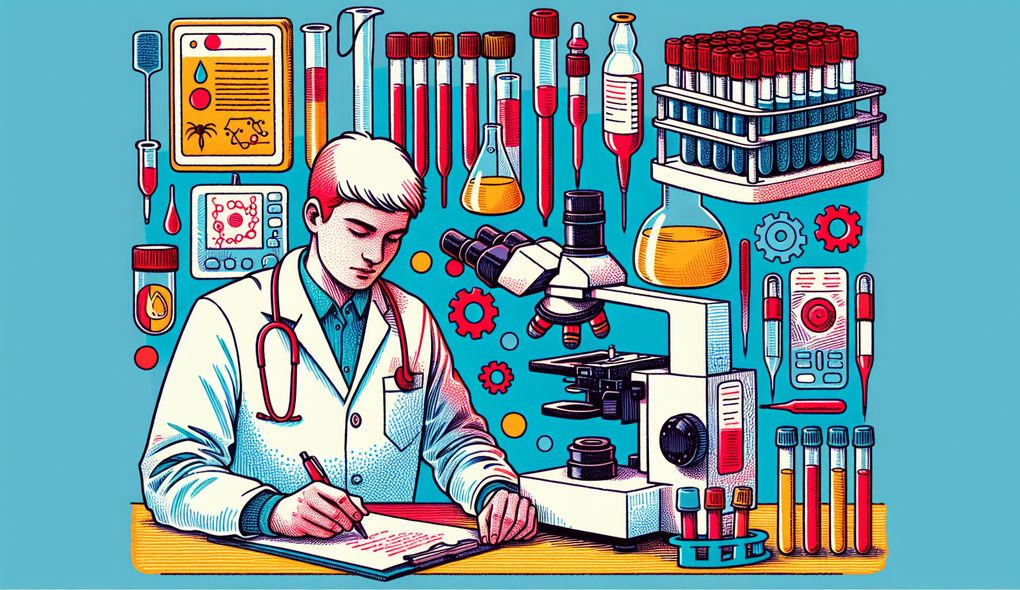Have you worked in collaboration with multidisciplinary teams to develop treatment plans? Can you provide examples?
INTERMEDIATE LEVEL

Sample answer to the question:
Yes, I have worked in collaboration with multidisciplinary teams to develop treatment plans. For example, during my residency program, I was part of a team that treated a patient with a rare blood disorder. We had hematologists, oncologists, pathologists, and geneticists working together to develop a personalized treatment plan. I was responsible for reviewing the patient's medical history, analyzing laboratory results, and contributing to the treatment discussion. We held frequent team meetings to discuss the patient's progress and adjust the treatment plan as needed. It was a collaborative effort that required effective communication and coordination between team members.
Here is a more solid answer:
Yes, I have extensive experience working in collaboration with multidisciplinary teams to develop treatment plans. In my previous position as a hematologist, I regularly collaborated with hematopathologists, laboratory scientists, radiologists, and oncologists to provide comprehensive care to patients. One notable example was when we had a patient with a complex case of leukemia. The team consisted of myself, an oncologist, a hematopathologist, and a radiation oncologist. We conducted regular team meetings where we reviewed the patient's medical history, assessed and discussed the results of various diagnostic tests, and collectively developed a treatment plan tailored to the patient's specific condition. I actively contributed to the discussions by providing my expertise in hematology and suggesting different therapeutic approaches based on the latest research in the field. Throughout the treatment process, I maintained open communication with the team members, ensuring that everyone was updated on the patient's progress and any adjustments to the treatment plan. This collaboration ultimately led to successful outcomes for the patient.
Why is this a more solid answer?
The solid answer expands on the basic answer by providing more specific details and examples of collaboration with multidisciplinary teams. It also demonstrates the candidate's expertise in developing treatment plans and their ability to contribute effectively to team discussions. However, it could still benefit from further elaboration on the candidate's specific role in the treatment planning process.
An example of a exceptional answer:
Yes, I have extensive experience collaborating with multidisciplinary teams to develop highly effective treatment plans. Throughout my career as a hematologist, I have actively sought opportunities to work with professionals from diverse backgrounds in order to provide comprehensive and holistic care to my patients. One notable example of this collaboration was when I participated in a tumor board meeting at my previous institution. The tumor board consisted of hematologists, oncologists, radiologists, genetic counselors, and research scientists. We met weekly to discuss challenging cases and develop treatment plans based on the latest research and evidence-based guidelines. I consistently played a lead role in these discussions, leveraging my expertise in hematology and my strong diagnostic skills to contribute valuable insights. For instance, there was a case where a patient presented with a rare blood disorder and we needed to determine the most appropriate treatment approach. I conducted an in-depth review of the patient's medical history, performed a thorough analysis of the laboratory results, and collaborated closely with the team to develop a personalized treatment plan. My active participation in these multidisciplinary discussions, combined with my commitment to staying up-to-date with advancements in the field, has consistently resulted in positive patient outcomes and improved overall quality of care.
Why is this an exceptional answer?
The exceptional answer provides an in-depth and highly detailed example of the candidate's collaboration with multidisciplinary teams. It showcases their leadership skills, extensive expertise in hematology, and commitment to staying up-to-date with advancements in the field. The answer effectively demonstrates the candidate's ability to develop highly effective treatment plans through collaboration.
How to prepare for this question:
- Familiarize yourself with the different disciplines involved in hematology and the specific roles they play in developing treatment plans.
- Reflect on your past experiences collaborating with multidisciplinary teams and think of specific examples that highlight your contributions to treatment planning.
- Stay updated with the latest advancements in hematology and related fields to provide valuable insights during team discussions.
- Practice effective communication skills and the ability to articulate your ideas and opinions in a collaborative setting.
- Highlight your ability to adapt to different team dynamics and work well with professionals from diverse backgrounds.
What are interviewers evaluating with this question?
- Collaboration
- Treatment planning

